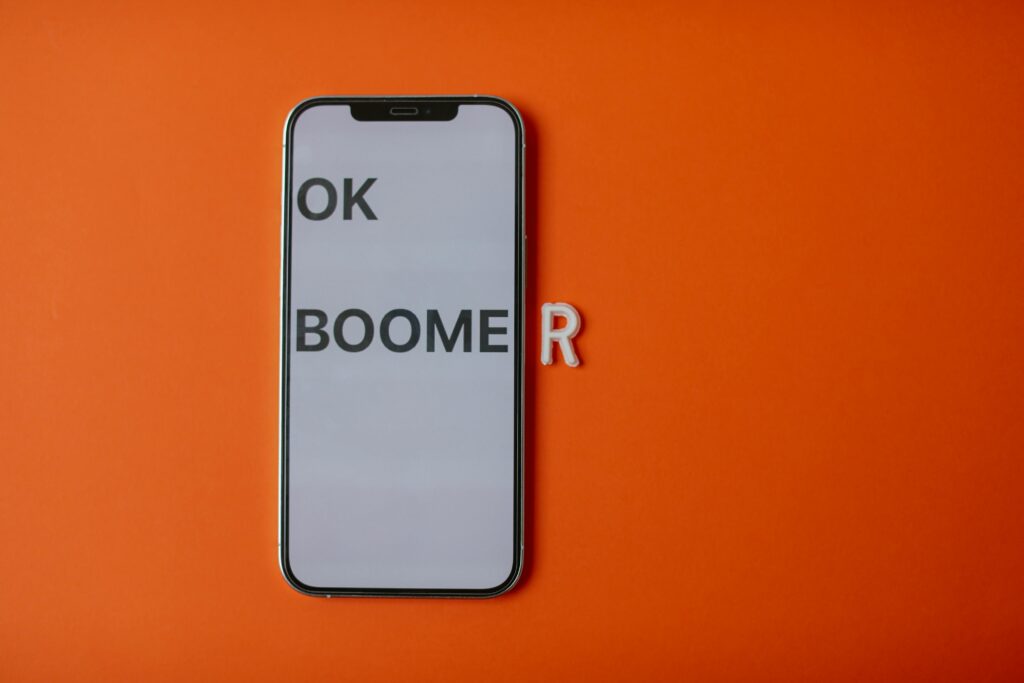The Power of Memes: How Gen Z is Using Humor to Talk About Serious Issues
From LOLs to Movements – How Viral Memes Spark Real Conversations From climate change anxiety to mental health struggles, Gen Z has a special talent for turning even the most serious issues into viral, relatable memes. Sure, we love to laugh, but memes are so much more than jokes. They are our digital battle cry, our coping mechanism, and our way of calling out the world we live in. Why Memes? Because They Just Work Memes aren’t just funny pictures; they’re a whole language. A well-timed meme can start a conversation, spread awareness, and even inspire action. They’re short, snappy, and ridiculously shareable. That student-debt meme? It’s not just hilarious—it’s a cry for help from an entire generation drowning in loans. Seriously, can we start a GoFundMe for anyone under 30? From LOL to Let’s Change the System Time and time again, we’ve seen memes evolve from pure humor into full-blown movements. Take “OK Boomer”—what started as a simple joke turned into a cultural mic-drop, calling out outdated attitudes. “No Planet B” memes made climate activism impossible to ignore. And who can forget the classic “gas prices so high I’m about to start riding a horse” meme? Funny? Yes. Painfully real? Also yes. It got people talking about inflation in a way dry statistics never could. Then there’s the “This is fine” meme—where a dog sips coffee while everything around him is on fire. If that doesn’t sum up adulthood, what does? And let’s not forget the Chill Guy/Girl meme—one version is calm and unbothered while the other is in full-blown panic. Like when your bank balance says Rs. 374.15 , but you still justify getting that overpriced coffee. Or when you’ve ignored all your assignments but convince yourself, “I work best under pressure.” Of course, there’s the classic “Distracted Boyfriend” meme, perfect for when we ignore actual responsibilities in favor of scrolling Instagram Reels. And “Is This a Pigeon?”, which basically sums up us mistaking impulsive online shopping for self-care. But now? Gen Z is pressing Ctrl+Z on mindless scrolling and Ctrl+S on blogs that actually matter! The Distracted Boyfriend Is This a Pigeon? Why We Love Memes Too Real – Sky-high rent, job stress, and overpriced coffee—memes expose it all with humor. Learning Without Trying – A burnout meme isn’t just funny, it’s a PSA. Also, naps should be a universal right. No Filters, No Lies – We call out capitalism, then splurge on overpriced brunch. Hypocrisy? Maybe. Honesty? Always. Instant Impact – No fluff, no rambling. Just facts, sarcasm, and a quick scroll to the next laugh. Memes with a Purpose Memes aren’t just here to entertain—they empower us. They turn frustration into conversations, awareness into action, and apathy into engagement. So the next time someone says, “It’s just a meme,” remind them that memes are how Gen Z speaks truth to power. And we’re just getting started. Also, tell them to chill—it’s called coping. CTRL+Z Takeaways Memes aren’t just quick laughs—they’re changing how we talk about the world. Whether we’re joking about gas prices, calling out toxic workplaces, or breaking the stigma around mental health, memes are our way of making serious topics easier to digest. So keep making memes. Keep sharing them. Keep using humor to spark real conversations. The world might not always take us seriously, and that’s fine. Because one day, they’ll realize that behind every “relatable meme” is a generation that’s done staying silent. Now go make a meme about this blog so we can keep the cycle going. “It’s free real estate.” Also, let’s not forget the Disaster girl. XD No Comments Pop-Off,The Digital Life About the Author Laxmi Bhatt I’m Laxmi, a content writer who turns caffeine into words and ideas into stories. If creativity had a speed limit, I’d be breaking it daily. Juggling words, dodging writer’s block, and occasionally questioning my life choices—one sentence at a time. Always typing, always snacking, never not thinking! Instagram X-twitter Quick links Menu Home Categories Z-Verse About the Author Laxmi Bhatt I’m Laxmi, a content writer who turns caffeine into words and ideas into stories. If creativity had a speed limit, I’d be breaking it daily. Juggling words, dodging writer’s block, and occasionally questioning my life choices—one sentence at a time. Always typing, always snacking, never not thinking! Instagram X-twitter Quick links Menu Home Categories Z-Verse



